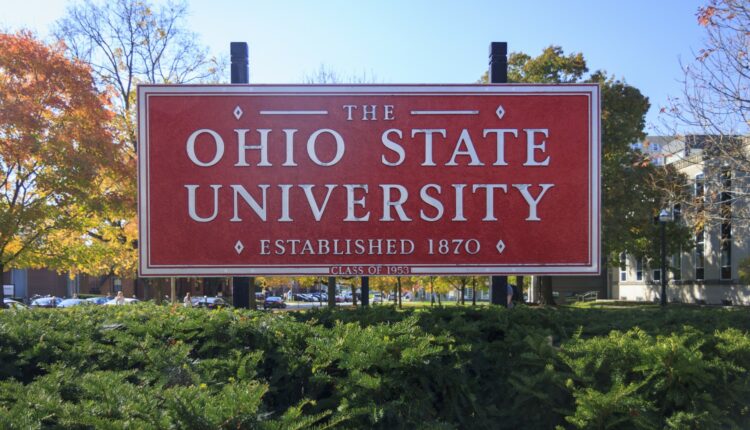Ohio State University: Ohio State implements new quarantine and isolation guidelines
The Ohio State University is providing new details on the effort to support university community members who test positive for COVID-19 or are identified as close contacts of those who are positive.
The start of spring semester and the rapid spread of the highly contagious Omicron variant of the COVID-19 virus has posed a new challenge for Ohio State. University leaders have quickly moved to create and implement processes and procedures to mitigate the spread of COVID-19 while working to maintain academic and co-curricular learning and operations.
“We realize that our approach to COVID has, by necessity, changed frequently over time, and recognize that this can be frustrating to all of us. We utilize the guidance of national, state and local health agencies and our own public health team and medical experts with the Wexner Medical Center,” said Senior Vice President of Student Life Melissa S. Shivers.
“The situation with this pandemic, and our knowledge about it, is rapidly evolving, leading to these changes in protocol. The good news is that as our understanding of COVID grows, we are increasingly better able to apply that knowledge to our efforts to contain the spread of COVID-19. This makes our community safer and our pandemic response even more effective, and, in many ways, convenient.”
Given the current positive caseload, Ohio State is prioritizing the containment of positive cases.
The university is dedicating one residence hall and spaces in nearby hotels to support students who test positive for the virus. Additionally, Ohio State has worked over the past weeks to overlay public health guidance and best practices with procedures to manage the need for isolation and quarantine spaces. The university has identified hundreds of on-campus configurations that will allow students to isolate, and in some cases quarantine, in their existing room assignment.
“Residential institutions of higher education have been supporting students through illness as long as we have been supporting them on their educational journey,” said Associate Vice President for the Residential Experience TJ Logan. “These new protocols we have developed with our public health and medical partners are so important to transitioning our approach to a new phase of pandemic response.”
Below is a general overview of the university’s current guidance for those who test positive or are a close contact of a positive case. More information and resources are available at the Safe and Healthy Buckeyes website.
Isolation
Students who test positive will be ordered to isolate for five days and required to complete a rapid antigen test on the fifth day.
If the results are negative on day 5 and symptoms are resolving, the student should:
Upload their results to go.osu.edu/selfreporttest and
Complete a wellness check to assess when they may return to their residence hall.
Students must complete both the wellness check and report their results at the same time on the morning of day 5 so they can receive confirmation from the contact tracing team to return to their room on day 6.
Students who are positive on day 5 will need to complete the full 10-day isolation period. The maximum amount of time most students will be in isolation is 10 days, unless they have symptoms that are not resolving.
To return to their room, classes and other in-person activities, students must have a release from isolation letter.
In addition to an entire residence hall that has been dedicated to isolation for another academic year, the university has also worked with nearby hotels to expand available spaces.
Additionally, students who live on campus in single rooms with a private, in-room bathroom will be able to isolate in their regularly assigned rooms. Food and drink deliveries will be made directly to each student’s door.
Upon leaving physical isolation, the student will be required to wear a well-fitting mask in every environment, including at home in a shared living space, for an additional five days. For activities like brushing teeth, showering or eating, masks should be replaced as soon as possible. If someone continues to have a fever, they must complete the full 10-day isolation.
Identified close contacts and quarantine
Automatic close contact notifications will be emailed to the roommates of students in university housing who test positive.
Residential students who are automatically notified as a close contact of a positive roommate, and off-campus students who learn they are a close contact of a positive case, should facilitate their own quarantine according to their vaccination status.
Residential students who receive an automatic close contact notice and are required to quarantine may, as necessary, be able to quarantine in their current room and must mask at all times (they are welcome to go home or to quarantine in another off-campus location). To allow for daily access to fresh air, students in quarantine will be able to leave their room fully masked to pick up food from a dining facility near their residence hall. All students identified as a close contact should complete the wellness check daily.
If asymptomatic, students should schedule a test at Jesse Owens North via MyChart as soon as possible.
If symptom free and they have completed the wellness check daily, students will receive a release from quarantine letter to return to in-person activities.
Upon leaving quarantine, the student will be required to wear a well-fitting mask in every environment, including at home in a shared living space, for an additional five days. For activities like brushing teeth, showering or eating, masks should be replaced as soon as possible.

